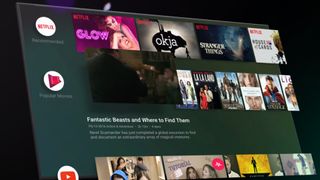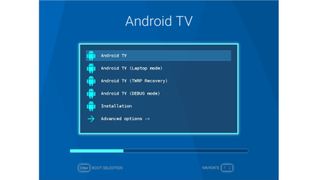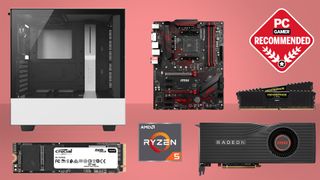Android TV port gives hope to forgotten, dust-covered PCs everywhere
At least, it will after a tiny bit more development time.

File this one under ‘potentially interesting for the future, but largely useless for now’. A PC port of Android TV has surfaced via the Linus Tech Tips forum, providing a lightweight media-centric OS that could breathe life into old hardware you have laying around.
As the post points out, with devastating understatement, it’s a little early in development right now. So early, in fact, that things like Netflix HD and Chromecasting are either not working or buggy, while other apps are described as ‘working really well’.

Based on the existing Android X86 project, it should have things like Wi-Fi, Bluetooth and sound drivers all pretty much nailed, which just leaves getting it onto your machine in the first place. Other posters on the forum confirmed it works with an Xbox controller, and the specs (1.2GHz dual-core CPU, 2GB RAM, 16GB storage and 64MB of video memory) point to a PC carcass well over ten years old.

Best CPU for gaming: the top chips from Intel and AMD
Best graphics card: your perfect pixel-pusher awaits
Best SSD for gaming: get into the game ahead of the rest
An ISO file is linked to from the project’s Google Sites page, which you can turn into a bootable USB drive using something like Rufus. Not having a spare PC around (at least, not one we want to reformat to EXT4), we tried creating a virtual machine out of it, but got no further than the setup menu. We managed to install the Android X86 port as one, however, so the project (and our tech skills) may not be a complete dud.
If you’re wondering what to do with an old PC, take a look at CloudReady, which turns it into a kind of Chromebook. Then there are light versions of various Linux flavours, such as Lubuntu. Beef up an elderly PC with plenty of storage, and you can turn it into a NAS server with FreeNAS. Just don’t expect to play too many games on any of them.
The biggest gaming news, reviews and hardware deals
Keep up to date with the most important stories and the best deals, as picked by the PC Gamer team.

Ian Evenden has been doing this for far too long and should know better. The first issue of PC Gamer he read was probably issue 15, though it's a bit hazy, and there's nothing he doesn't know about tweaking interrupt requests for running Syndicate. He's worked for PC Format, Maximum PC, Edge, Creative Bloq, Gamesmaster, and anyone who'll have him. In his spare time he grows vegetables of prodigious size.
Most Popular






